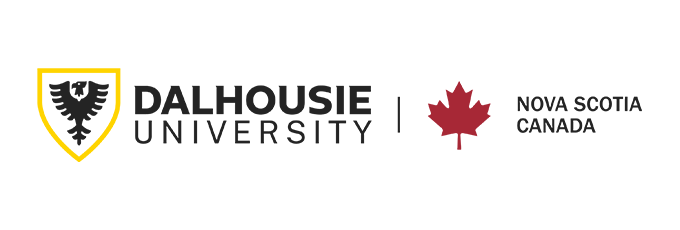Do you want to study at a Canadian university, but you need to improve your English for your studies? Dalhousie University’s English for Academic Purposes (EAP) program is perfect for you. With support from experienced teachers, you will build the English skills you need to succeed in an English-speaking university.
Founded in 1818, Dalhousie University today has four campuses and 21,000 students from 115 countries. It has 13 study areas (faculties) and receives over CA$250 million each year for research.
At Dalhousie, you will find amazing teachers and exciting new discoveries. In our EAP program, you will improve your English to meet both graduate and undergraduate university admissions requirements (no standardized test needed). You’ll gain research skills and study skills for success at Dalhousie University. You’ll also understand Canadian university culture and learn what is expected of students in Canada.
Just ask Mingyu Cai, a business student from China who completed the EAP 2 program.

Mingyu Cai is an undergraduate business student at Dalhousie University who completed the EAP-2 program. Source: Mingyu Cai
“During my time at EAP, I had the opportunity to connect with a diverse group of professors and classmates who contributed to my academic development,” says Mingyu Cai, “I gained a lot of new knowledge through team meetings, collaborative projects, and one-on-one meetings.”
The EAP program is run by the Faculty of Open Learning & Career Development. Just last year, the faculty welcomed 181 students to the EAP program. Classes take place in person or online.
“The EAP 2 class provided lots of tasks in two parts – writing and speaking. These tasks increased my courage,” Cai says. “A particularly challenging project was the presentation in a speaking class. We had to speak to all EAP students, and it increased my confidence.”

Students in the EAP program can take their courses face-to-face on one of the Halifax campuses, or online via Teams. Source: Dalhousie University
The EAP program has four levels, designed to help you improve step-by-step:
EAP Foundations 1 (Beginner – A2 Level): This is for beginners (A2 level) to learn the basics of reading and writing in English.
EAP Foundations 2 (Intermediate – B1): You will use what you learned in Foundations 1 to improve your English for university. You will write essays and read short academic texts.
EAP Level 1 (Upper-Intermediate – B2): Here, you will learn how to understand and use English in university classes. This includes listening, reading, writing, and research skills. This course also teaches you how to use the library, manage your time, and study by yourself.
EAP Level 2 (Proficient – C1): You will focus on effective reading, vocabulary acquisition, and strategic listening and note-taking for lectures. You will develop strong writing, research, and speaking abilities in an academic setting.
When asked what key skills he had developed during his time at Dalhousie, Cai says independent study. “In China, the teachers push students to study. In Canada, we need to plan and manage our time,” he explains.
Completing the EAP program will open many new opportunities. Your academic English skills will be much better and you’ll be ready to study at Dalhousie.
Are you thinking of applying to Dalhousie and wanting to improve your English skills?
- After you apply, you will take an EAP Placement Test. This test is online and takes two hours.
- You will also have an interview to check your reading, writing, and speaking skills.
Your test results will show which of the four EAP levels is best for you. This is based on a worldwide standard called the Common European Framework of Reference for Languages (CEFR).
Follow Dalhousie University on Facebook, Instagram, TikTok, YouTube, LinkedIn, X, and Bluesky. If you have any questions, please contact us at els@dal.ca, we are here to support your learning journey.













